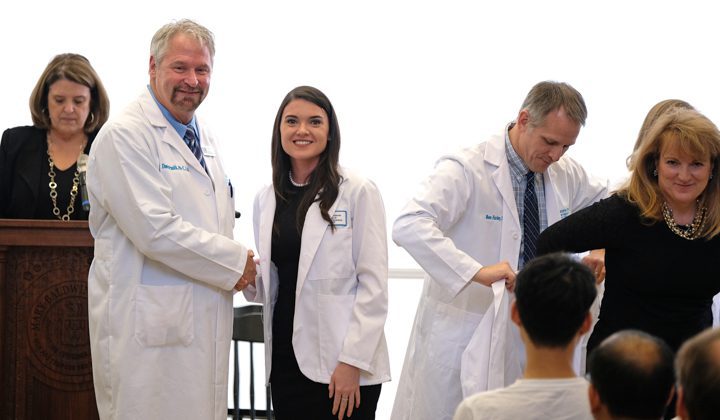Science Communication (Minor)
Share your passion for science with the world.
The Science Communication minor equips students with the skills to translate complex scientific concepts into clear, compelling messages for diverse audiences. This interdisciplinary program blends science, media, and communication, preparing students for
careers in science journalism, public health messaging, environmental advocacy, and science policy. It is an excellent complement to majors in the general sciences, journalism, or healthcare administration.
- FormatOn Campus
- Degree(s)Minor
Next steps


Why minor in Science Communication at Mary Baldwin?
Science shapes how we understand and interact with our world—but its impact depends on how well it’s communicated. As misinformation spreads and scientific literacy becomes more crucial, the demand for skilled science communicators is growing. Whether you’re interested in science journalism, public health outreach, environmental advocacy, or museum education, MBU will prepare you to bridge the gap between researchers and the public through clear, engaging storytelling.
In the Science Communication minor, you’ll develop practical skills in:
- Science writing and journalism
- Digital media and content creation
- Public relations strategies and best practice
- Ethical considerations in research and communication
Whether you’re a future scientist looking to sharpen your outreach skills or a communicator passionate about making science accessible, this minor will give you the tools to inspire, inform, and engage.
Next steps

Minor Requirements
MBU’s Science Communication curriculum draws on a combination of coursework from various scientific disciplines in addition to communication courses. With additional electives in healthcare administration, this minor can be specially tailored to suit a career in public health advocacy and public relations for medical institutions.
Sample Courses
This courses introduces the basics of media writing, covering a variety of writing styles, including journalism and public relations. It provides practical experience in writing, editing, and meeting deadlines for Campus Comments, the MBC student newspaper.
This course analyzes the factors that shape health care policy in the United States, including public policy and various types of health care policies, government structures and institutions responsible for making health policy, important actors in the health reform debate and implementation, and their strategies to influence policy. The stages of the policy process are exemplified in case studies of several significant health care policies, and health care law is reviewed. Health reform efforts at the national, state, local, and institutional levels are analyzed.
Our Faculty
Our faculty are deeply invested in the academic and professional success of our students. With a passion for teaching, these educators go above and beyond, providing mentorship, personalized guidance, and exciting hands-on research opportunities.
